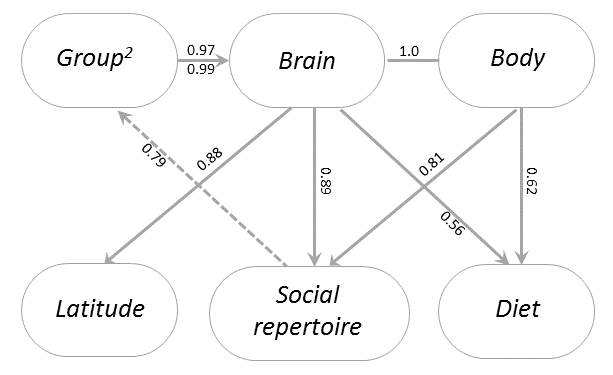Last week, my paper with Kieran Fox and Susanne Shultz was published in Nature Ecology and Evolution. The paper was a multiyear project, which consisted of countless hours spent poring through marine mammal literature to create the most comprehensive database of cetacean physiology, social structure, life history, and behavior to date. We then used this database to test some of the predictions of the Social Brain and Cultural Brain Hypotheses. Some of the confirmations of these predictions are shown in Figure 3 of the paper below.
Cetaceans represent a great test for the Social Brain and Cultural Brain Hypotheses (CBH), because of how evolutionarily alien these species are, and how strange their underwater world is compared to the world we inhabit. We have previously tested the CBH predictions with primates, but their evolutionary closeness to humans means that the relationships we find may be due to our evolutionary logic or due to these features (such as large brains and high sociality) being present in a common ancestor. Thus finding these relationships in cetaceans is strong evidence for the evolutionary logic. It also sets up cetaceans as an interesting control group for understanding human evolution.

The ongoing massive media response and public interest in marine mammals and the evolutionary sciences was heartwarming. Altmetrics suggested a score of 1026, in the top 5 of articles in Nature Ecology and Evolution, receiving the most attention of recent articles and top 50 of all articles of a similar age. Highlights included several video and audio interviews, including with BBC World News, BBC World Service Radio “Science in Action”, CBC “The Broadcast” (below), and the front page of the print edition of the The Times and front page of the website of The Guardian.
Selected Media Coverage
Scientific American (republished in January print edition of magazine)
Some unexpected places, including Cosmo 🙂










